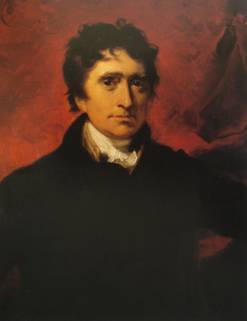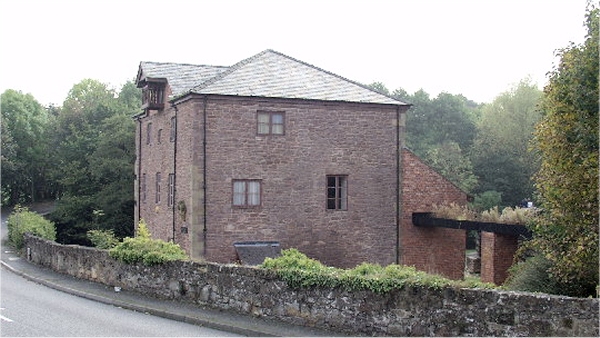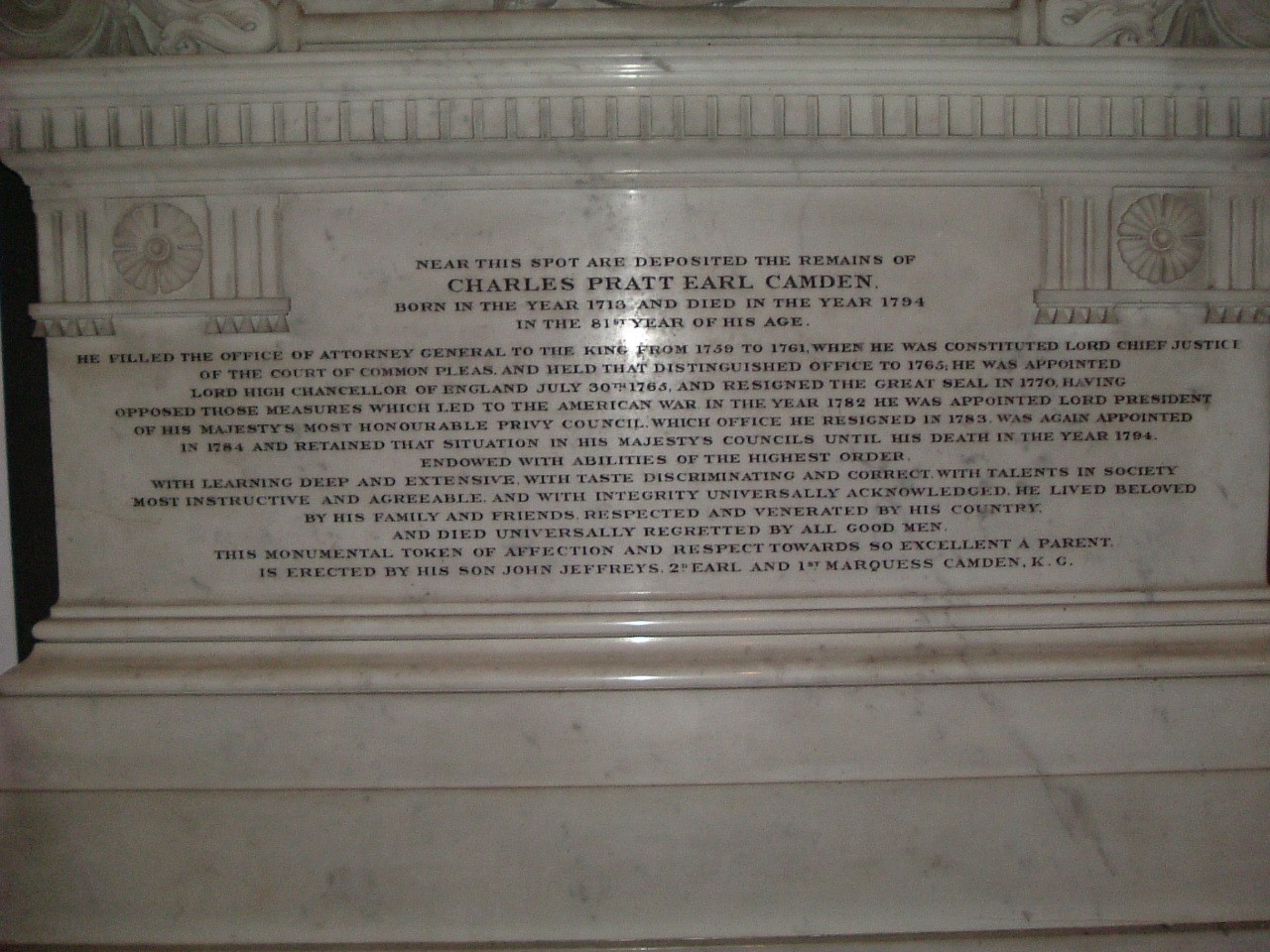|
The Case Of The Dean Of St Asaph
The Case of the Dean of St Asaph, formally ''R v Shipley'', was the 1784 trial of William Davies Shipley, the Dean of St Asaph, for seditious libel. In the aftermath of the American War of Independence, electoral reform had become a substantial issue, and William Pitt the Younger attempted to bring a Bill before Parliament to reform the electoral system. In its support Shipley republished a pamphlet written by his brother-in-law, Sir William Jones, which noted the defects of the existing system and argued in support of Pitt's reforms. Thomas FitzMaurice, the brother of British Prime Minister Earl of Shelburne, reacted by indicting Shipley for seditious libel, a criminal offence which acted as "the government's chief weapon against criticism", since merely publishing something that an individual judge interpreted as libel was enough for a conviction; a jury was prohibited from deciding whether the material was actually libellous. The law was widely seen as unfair, and a Society ... [...More Info...] [...Related Items...] OR: [Wikipedia] [Google] [Baidu] |
Court Of King's Bench (England)
The Court of King's Bench, formally known as The Court of the King Before the King Himself, was a court of common law in the English legal system. Created in the late 12th to early 13th century from the '' curia regis'', the King's Bench initially followed the monarch on his travels. The King's Bench finally joined the Court of Common Pleas and Exchequer of Pleas in Westminster Hall in 1318, making its last travels in 1421. The King's Bench was merged into the High Court of Justice by the Supreme Court of Judicature Act 1873, after which point the King's Bench was a division within the High Court. The King's Bench was staffed by one Chief Justice (now the Lord Chief Justice of England and Wales) and usually three Puisne Justices. In the 15th and 16th centuries, the King's Bench's jurisdiction and caseload was significantly challenged by the rise of the Court of Chancery and equitable doctrines as one of the two principal common law courts along with the Common Pleas. To recov ... [...More Info...] [...Related Items...] OR: [Wikipedia] [Google] [Baidu] |
Edward Bearcroft
Edward Bearcroft, KC (30 April 1737 – 20 November 1796) was an English barrister, judge, and politician. Origins and education Born on 30 April 1737, he was the second son of the Reverend Philip Bearcroft DD, then Preacher later Master of the Charterhouse, and his first wife, born Elizabeth Lovegrove. Educated at Charterhouse until 1752, he then went to Peterhouse, Cambridge and in 1754 began legal studies at the Inner Temple, being called to the bar on 24 November 1758. Legal career He built a respectable and lucrative practice as a barrister, being appointed counsel and steward of accounts to the governors of Charterhouse in 1765 and King's Counsel on 24 July 1772. In the Inner Temple he was a bencher in 1772, reader in 1780 and treasurer in 1781. He appeared in major trials, in 1778 being a defending counsel in the case of R v Baillie, where Captain Baillie was accused of criminal libel and in 1784 he was counsel for the prosecution in the case at Shrewsbury against Willia ... [...More Info...] [...Related Items...] OR: [Wikipedia] [Google] [Baidu] |
House Of Lords
The House of Lords, also known as the House of Peers, is the Bicameralism, upper house of the Parliament of the United Kingdom. Membership is by Life peer, appointment, Hereditary peer, heredity or Lords Spiritual, official function. Like the House of Commons of the United Kingdom, House of Commons, it meets in the Palace of Westminster in London, England. The House of Lords scrutinises Bill (law), bills that have been approved by the House of Commons. It regularly reviews and amends bills from the Commons. While it is unable to prevent bills passing into law, except in certain limited circumstances, it can delay bills and force the Commons to reconsider their decisions. In this capacity, the House of Lords acts as a check on the more powerful House of Commons that is independent of the electoral process. While members of the Lords may also take on roles as government ministers, high-ranking officials such as cabinet ministers are usually drawn from the Commons. The House of Lo ... [...More Info...] [...Related Items...] OR: [Wikipedia] [Google] [Baidu] |
Thomas Erskine By Thomas Lawrence 1802
Thomas may refer to: People * List of people with given name Thomas * Thomas (name) * Thomas (surname) * Saint Thomas (other) * Thomas Aquinas (1225–1274) Italian Dominican friar, philosopher, and Doctor of the Church * Thomas the Apostle * Thomas (bishop of the East Angles) (fl. 640s–650s), medieval Bishop of the East Angles * Thomas (Archdeacon of Barnstaple) (fl. 1203), Archdeacon of Barnstaple * Thomas, Count of Perche (1195–1217), Count of Perche * Thomas (bishop of Finland) (1248), first known Bishop of Finland * Thomas, Earl of Mar (1330–1377), 14th-century Earl, Aberdeen, Scotland Geography Places in the United States * Thomas, Illinois * Thomas, Indiana * Thomas, Oklahoma * Thomas, Oregon * Thomas, South Dakota * Thomas, Virginia * Thomas, Washington * Thomas, West Virginia * Thomas County (other) * Thomas Township (other) Elsewhere * Thomas Glacier (Greenland) Arts, entertainment, and media * ''Thomas'' (Burton novel) 1969 nove ... [...More Info...] [...Related Items...] OR: [Wikipedia] [Google] [Baidu] |
Wrexham
Wrexham ( ; cy, Wrecsam; ) is a city and the administrative centre of Wrexham County Borough in Wales. It is located between the Welsh mountains and the lower Dee Valley, near the border with Cheshire in England. Historically in the county of Denbighshire, and later the county of Clwyd in 1974, it has been the principal settlement of Wrexham County Borough since 1996. Wrexham has historically been one of the primary settlements of Wales. At the 2011 Census, it had an urban population of 61,603 as part of the wider Wrexham built-up area which made it Wales's fourth largest urban conurbation and the largest in north Wales. The city comprises the local government communities of Acton, Caia Park, Offa and Rhosddu. Wrexham's built-up area extends further into villages like Bradley, Brymbo, Brynteg, Gwersyllt, New Broughton, Pentre Broughton and Rhostyllen. Wrexham was likely founded prior to the 11th century and developed in the Middle Ages as a regional centre for t ... [...More Info...] [...Related Items...] OR: [Wikipedia] [Google] [Baidu] |
Justice Of Chester
The Justice of Chester was the chief judicial authority for the county palatine of Chester, from the establishment of the county until the abolition of the Great Sessions in Wales and the palatine judicature in 1830. Within the County Palatine (which encompassed Cheshire, the City of Chester, and Flintshire), the Justice enjoyed the jurisdiction possessed in England by the Court of Common Pleas and the King's Bench. While the legal reorganisation of Wales and the Marches under Henry VIII diminished the authority of the Earl of Chester (i.e., the Prince of Wales) in the County Palatine, the authority of the Justice was, in fact, increased. In 1542, the Great Sessions were established in Wales, that country being divided into four circuits of three shires each. Denbighshire, Flintshire, and Montgomeryshire were made part of the Chester circuit, over which the Justice presided. Under Elizabeth I, a second justice was added to each of the Welsh circuits, after which the senior and ... [...More Info...] [...Related Items...] OR: [Wikipedia] [Google] [Baidu] |
Lloyd Kenyon, 1st Baron Kenyon
Lloyd Kenyon, 1st Baron Kenyon (5 October 1732 – 4 April 1802), was a British politician and barrister, who served as Attorney General, Master of the Rolls and Lord Chief Justice. Born to a country gentleman, he was initially educated in Hanmer before moving to Ruthin School aged 12. Rather than going to university he instead worked as a clerk to an attorney, joining the Middle Temple in 1750 and being called to the Bar in 1756. Initially almost unemployed due to the lack of education and contacts which a university education would have provided, his business increased thanks to his friendships with John Dunning, who, overwhelmed with cases, allowed Kenyon to work many, and Lord Thurlow who secured for him the Chief Justiceship of Chester in 1780. He was returned as the Member of Parliament (MP) for Hindon the same year, serving repeatedly as Attorney General under William Pitt the Younger. He effectively sacrificed his political career in 1784 to challenge the ballot of C ... [...More Info...] [...Related Items...] OR: [Wikipedia] [Google] [Baidu] |
R V Carr
R, or r, is the eighteenth letter of the Latin alphabet, used in the modern English alphabet, the alphabets of other western European languages and others worldwide. Its name in English is ''ar'' (pronounced ), plural ''ars'', or in Ireland ''or'' . The letter is the eighth most common letter in English and the fourth-most common consonant (after , , and ). The letter is used to form the ending "-re", which is used in certain words such as ''centre'' in some varieties of English spelling, such as British English. Canadian English also uses the "-re" ending, unlike American English, where the ending is usually replaced by "-er" (''center''). This does not affect pronunciation. Name The name of the letter in Latin was (), following the pattern of other letters representing continuants, such as F, L, M, N and S. This name is preserved in French and many other languages. In Middle English, the name of the letter changed from to , following a pattern exhibited in many o ... [...More Info...] [...Related Items...] OR: [Wikipedia] [Google] [Baidu] |
Rotten Borough
A rotten or pocket borough, also known as a nomination borough or proprietorial borough, was a parliamentary borough or constituency in England, Great Britain, or the United Kingdom before the Reform Act 1832, which had a very small electorate and could be used by a patron to gain unrepresentative influence within the unreformed House of Commons. The same terms were used for similar boroughs represented in the 18th-century Parliament of Ireland. The Reform Act 1832 abolished the majority of these rotten and pocket boroughs. Background A parliamentary borough was a town or former town that had been incorporated under a royal charter, giving it the right to send two elected burgesses as Members of Parliament (MPs) to the House of Commons. It was not unusual for the physical boundary of the settlement to change as the town developed or contracted over time, for example due to changes in its trade and industry, so that the boundaries of the parliamentary borough and of the phys ... [...More Info...] [...Related Items...] OR: [Wikipedia] [Google] [Baidu] |
Libel Act 1792
The Libel Act 1792This short title was conferred by the Short Titles Act 1896, section 1 and the first schedule (32 Geo. III c. 60) (also known as Fox's Act) was an Act of the Parliament of Great Britain. At the urging of the Whig politician Charles James Fox, the Act restored to juries the right to decide what was libel and whether a defendant was guilty, rather than leaving it solely to the judge. The Act was repealed by the Coroners and Justice Act 2009, Sched.23 Part 2, with effect from 12 January 2010; this abolished the criminal libel laws. The Act itself only applied to criminal trials, but the rules it created have come to be applied in civil trials. Edmund Burke Edmund Burke (; 12 January NS.html"_;"title="New_Style.html"_;"title="/nowiki>New_Style">NS">New_Style.html"_;"title="/nowiki>New_Style">NS/nowiki>_1729_–_9_July_1797)_was_an_NS.html"_;"title="New_Style.html"_;"title="/nowiki>New_Style">N ... presented a similar bill in 1791. Charles James Fox oppos ... [...More Info...] [...Related Items...] OR: [Wikipedia] [Google] [Baidu] |
Charles Pratt, 1st Earl Camden
Charles Pratt, 1st Earl Camden, PC (baptised 21 March 1714 – 18 April 1794) was an English lawyer, judge and Whig politician who was first to hold the title of Earl Camden. As a lawyer and judge he was a leading proponent of civil liberties, championing the rights of the jury, and limiting the powers of the State in leading cases such as '' Entick v Carrington''. He held the offices of Chief Justice of the Common Pleas, Attorney-General and Lord High Chancellor of Great Britain, and was a confidant of Pitt the Elder, supporting Pitt in the controversies over John Wilkes and American independence. However, he clung to office himself, even when Pitt was out of power, serving in the cabinet for fifteen years and under five different prime ministers. During his life, Pratt played a leading role in opposing perpetual copyright, resolving the regency crisis of 1788 and championing Fox's Libel Bill. He started the development of the settlement that was later to become Camden Tow ... [...More Info...] [...Related Items...] OR: [Wikipedia] [Google] [Baidu] |



